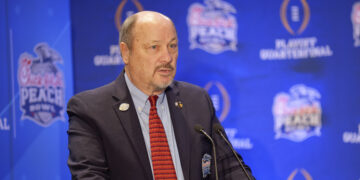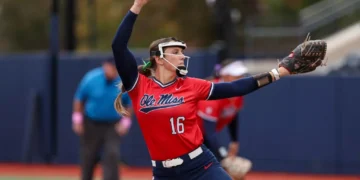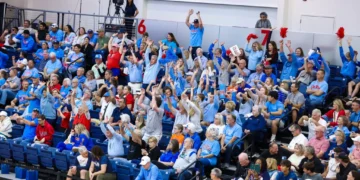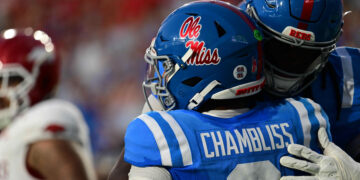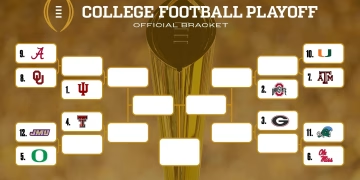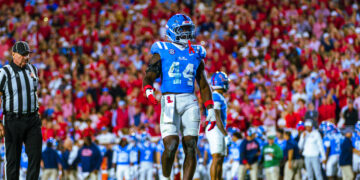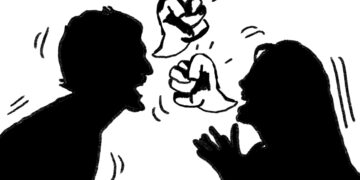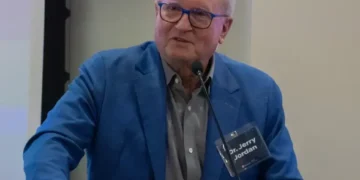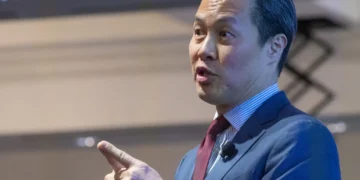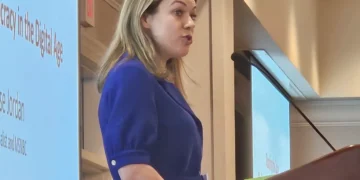Although the Oxford Masjid may look different than other places of worship you would find around town, Sunday school at the Oxford Masjid is just like any other Sunday school.
Teens sit in a circle, passing a microphone around — each taking their time to carefully recite verses of sacred scripture from the Quran. There’s a set of kids playing an intense soccer game in the field outback. Tables inside the masjid are covered in paint and glitter from arts and crafts.
However, what happens after the typical Sunday school festivities is what makes Sunday school at the Oxford Masjid unique.
Carpets are moved aside, benches are put away and the rest of the day is spent mopping, dusting and cleaning the masjid in preparation for the upcoming week.

Photo by Kharley Redmon / The Daily Mississippian.
Some of the volunteers cleaning are undergraduate students, some are Ph.D. students and some are tenured faculty members, but all are a part of the University of Mississippi Muslim Student Association.
The MSA is a diverse group of Muslim students and faculty members dedicated to developing a robust Muslim community on and off-campus. They help the entire UM population through community service projects.
Heba Marzouk is a pharmacy student and the current president of the MSA. Marzouk is originally from Cairo, Egypt, but moved to Oxford in middle school.
Marzouk, who has lived in Japan, Egypt and America, said that she would choose to live in America given choice because of the key factor of freedom.
“We hope that that stays the same. We shouldn’t feel afraid of praying,” Marzouk said. “We shouldn’t be afraid of wearing the hijab, which, unfortunately, some people are.”
Marzouk was one of the first girls at Oxford High School to begin wearing the hijab, the scarf that many Muslim women use to cover their heads.
“I was the only one who wore it, and the first day I wore it, I had completely unexpected reactions,” she said. “Every person in the school was excited for me.”
Marzouk wrote her honors thesis on the hijab, which included the production of a documentary, the first ever to accompany an honors thesis.
“Just because I look different doesn’t mean I’m not American, okay?” she said with a laugh. “A lot of times, the media pursues stereotypical things and negative things that have no relation to reality.”
Marzouk addressed some of the misconceptions people have about Oxford’s Muslim community.
“First of all, we do have much more of a Muslim community than most people think,” Marzouk said. “We’re very active. It’s just never brought into the light.”
Marzouk said that many Muslim students are Ph.D., graduate and professional students. She also noted the work of Mahmoud ElSohly. ElSohly is renowned for his research involving marijuana which ranges from the testing and detection of drugs to cancer treatment.
“He’s the one who directs the whole marijuana project that’s only unique to the University of Mississippi,” she said.
The UM Marijuana Project, founded in 1968, is the one of the few sources of federally approved marijuana for researchers in the US studying its pharmaceutical, botanical and chemical effects.
“Dr. ElSohly is Muslim. It’s not only students, it’s faculty and staff, and they’re core leaders in the community,” Marzouk said.
Adam Soltani is a biochemistry and Arabic major, as well as the current treasurer of the MSA. Soltani is originally from Washington D.C., and this is his first year at the University of Mississippi.
Washington D.C. is home to one of the largest Muslim communities in the United States. Soltani said moving from a large community to a smaller one continually gives him new experiences.
“I’ve never had an opportunity to be as close to people in the Muslim community as I have had the chance to here,” Soltani said. “Coming from a very established mosque, you had a lot of older people leading. Which is fine, but here they really emphasize giving the younger people a chance. They gave me a chance to lead prayers. Actually this Friday, I just led a prayer.”
Although Oxford has an established Muslim community, there are still challenges.
Mohamed Marzouk, a pharmaceutical student and the secretary for the MSA, touched on some of these challenges and what the MSA does to overcome them.
“I’ve asked multiple people on campus, ‘what do you think of Muslims?’” Mohamed Marzouk said. “They’re like, ‘all I know is what comes from the news,’ which is fair. All they get is whatever is given.”
Mohamed Marzouk, Heba Marzouk and Soltani agreed that the MSA represents and depicts the true Muslim community through action.
“We are not the kind of MSA who posts a bunch of speeches and debates about Islamic topics,” Heba Marzouk said. “We’re the MSA that shows who we are as Muslims through engagement and the services we provide.”
This year the MSA started a free tutoring service available to all students at the university.
“We’re knowledgeable, so why not help others who can’t afford tutoring?” Heba Marzouk said. “The students who have signed up have actually received tutoring and have asked for second sessions.”
Tutoring is available in many subjects, including chemistry, biology, Arabic and programming.
Within the Muslim community, the MSA does monthly cleanings of the Oxford Masjid, the mosque in Oxford and runs a Sunday school program for kids each month.
The MSA also hosted a picnic-style event in Lamar Park to encourage Muslim community members of all ages to engage with and get to know each other.
“Another program we’re currently working on is called the Islamic Relief meal packaging project,” Heba Marzouk said. “We would package meals which they distribute to poor families in the United States. The biggest thing for us to do is to find a venue. We’ve been pursuing a lot of different places.”
Heba Marzouk offered the actual definition of Islam.
“Islam means peace,” she said. “The actual religion represents peace, rather than what they stereotype as the opposite end.”
Marzouk said her parents are representative of the key values of Islam. Her dad, a pharmacist in Egypt, would provide medicine to those who couldn’t afford it.
“It’s ingrained in me to always be giving, always be helping,” she said. “Thats a part of Islam. Islam is there to help others.”













